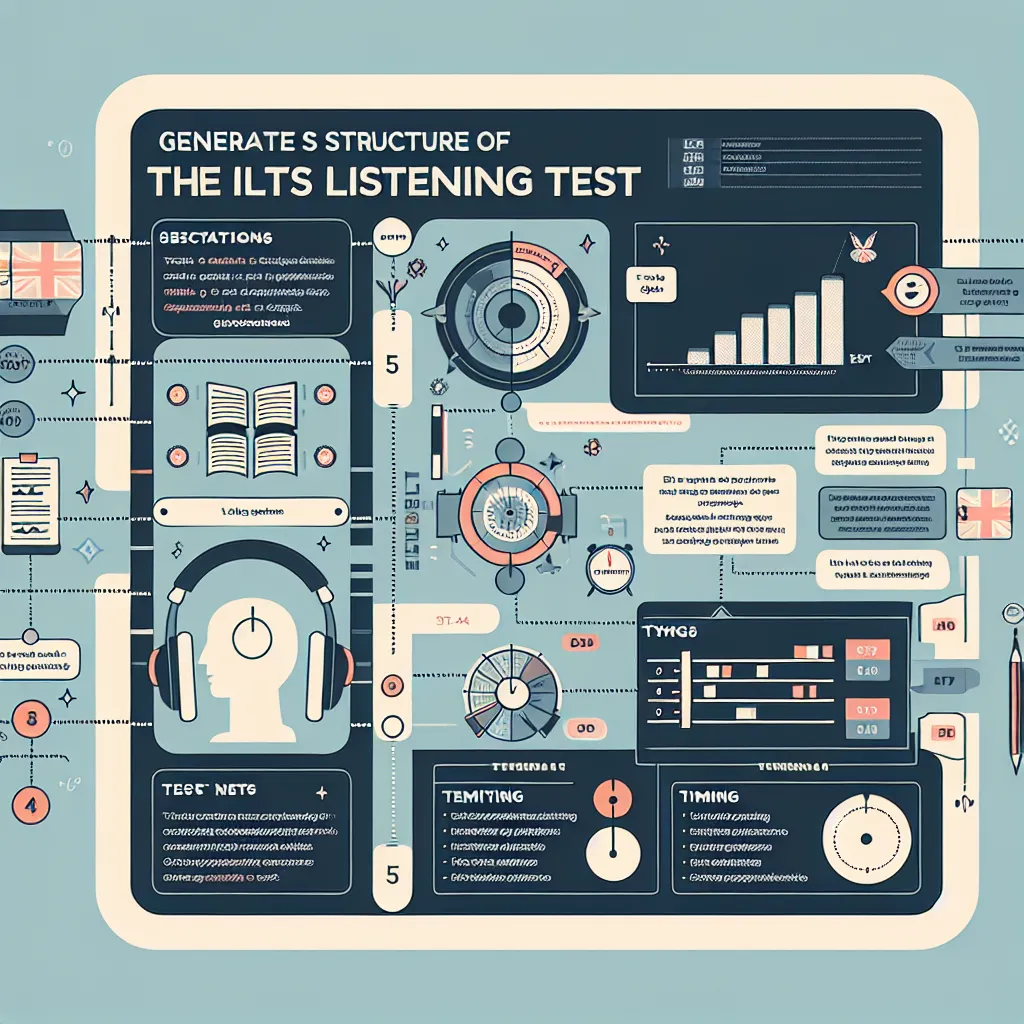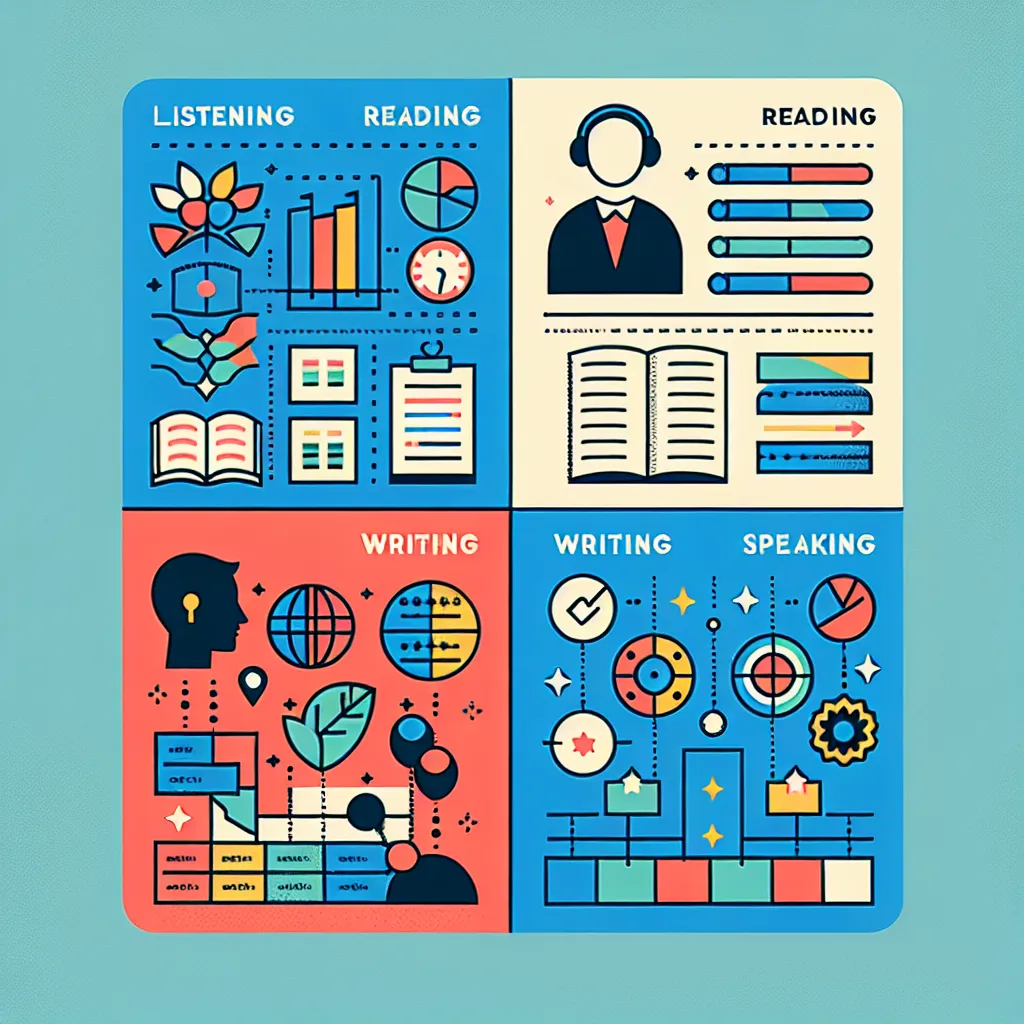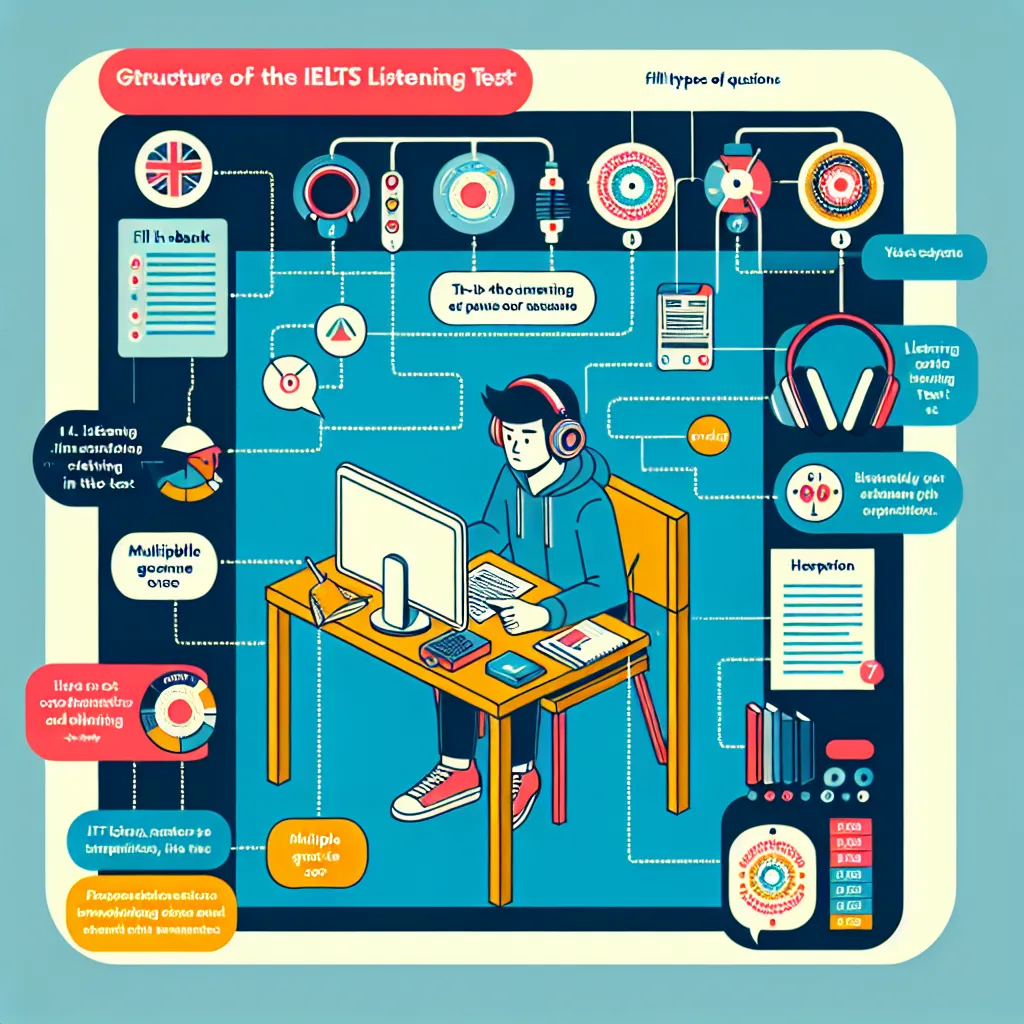Are you preparing for the IELTS exam and looking to boost your listening score? You’re in the right place! As an experienced IELTS instructor and content creator for LearnEnglish.NET, I’m here to share proven strategies to help you improve your IELTS listening skills quickly and effectively. In this comprehensive guide, we’ll explore practical techniques, common challenges, and expert tips to enhance your listening abilities and ace the IELTS listening test.
Understanding the IELTS Listening Test
Before diving into improvement strategies, it’s crucial to understand the structure and requirements of the IELTS listening test. The test consists of four sections, each with 10 questions, and lasts approximately 30 minutes. You’ll hear a variety of accents and be expected to answer questions on different types of audio, including conversations and monologues.
 IELTS Listening Test Structure
IELTS Listening Test Structure
Quick Strategies to Boost Your IELTS Listening Skills
1. Immerse Yourself in English Audio
One of the most effective ways to improve your listening skills is through constant exposure to English audio. Here are some practical ways to do this:
- Listen to English podcasts daily
- Watch English news broadcasts and documentaries
- Enjoy English movies and TV shows with subtitles
- Tune in to English radio stations
By immersing yourself in English audio, you’ll become more familiar with different accents, speech patterns, and vocabulary used in various contexts.
2. Practice Active Listening
Active listening involves engaging with the audio content rather than passively hearing it. Try these techniques:
- Take notes while listening
- Summarize what you’ve heard after each listening session
- Predict what might come next in a conversation or monologue
- Identify the main ideas and supporting details
These practices will help you stay focused and improve your comprehension skills.
3. Familiarize Yourself with Various Accents
The IELTS listening test features speakers with different English accents, including British, American, Australian, and Canadian. To prepare:
- Listen to podcasts and videos featuring speakers from different English-speaking countries
- Use accent-specific resources like the BBC World Service or Australian Broadcasting Corporation
- Practice with IELTS-specific listening materials that include various accents
4. Improve Your Vocabulary
A strong vocabulary is crucial for understanding complex audio passages. To expand your word bank:
- Learn new words in context through listening exercises
- Create a vocabulary journal and review it regularly
- Use flashcards or vocabulary apps to memorize new terms
- Pay attention to synonyms and paraphrasing in IELTS practice tests
5. Develop Your Note-Taking Skills
Effective note-taking is essential for the IELTS listening test. Practice these techniques:
- Use abbreviations and symbols
- Focus on key information (who, what, when, where, why, how)
- Organize your notes logically
- Practice transferring your notes to answer sheets quickly and accurately
Common IELTS Listening Challenges and How to Overcome Them
Challenge 1: Keeping Up with Fast Speech
Solution:
- Practice with audio at various speeds
- Use the pause and rewind functions during practice sessions
- Focus on understanding the gist rather than every word
Challenge 2: Distinguishing Similar Sounds
Solution:
- Study minimal pairs (words that differ by only one sound)
- Practice pronunciation and listening exercises focusing on problematic sounds
- Pay attention to context clues to help differentiate similar-sounding words
Challenge 3: Maintaining Focus
Solution:
- Build your listening stamina by gradually increasing practice session lengths
- Create a distraction-free environment during practice and the actual test
- Use mindfulness techniques to improve concentration
Advanced Tips for IELTS Listening Success
-
Analyze your mistakes: After each practice test, review your errors and identify patterns to focus your study efforts.
-
Practice with authentic materials: Use real-world resources like academic lectures and professional presentations to prepare for the variety of content in the IELTS test.
-
Develop prediction skills: Before listening, read the questions and try to anticipate the type of information you’ll need to listen for.
-
Time management: Practice completing tasks within the given time limits to improve your efficiency during the actual test.
-
Improve your general English skills: Remember that listening is interconnected with other language skills. Enhance your overall English proficiency to see improvements in listening.
 IELTS Listening Practice Session
IELTS Listening Practice Session
Next Steps: Creating Your IELTS Listening Improvement Plan
Now that you have a comprehensive understanding of how to improve your IELTS listening skills quickly, it’s time to create a personalized study plan:
- Assess your current listening level with a practice test
- Set specific, measurable goals for improvement
- Create a daily study schedule incorporating the strategies mentioned above
- Track your progress with regular practice tests
- Adjust your plan as needed based on your performance and areas for improvement
Remember, consistent practice and a positive attitude are key to success in the IELTS listening test. Stay motivated, celebrate your progress, and don’t hesitate to seek help from IELTS tutors or study groups if you need additional support.
By following these expert tips and strategies, you’ll be well on your way to improving your IELTS listening skills quickly and efficiently. Good luck with your IELTS preparation, and may you achieve the score you’re aiming for!




